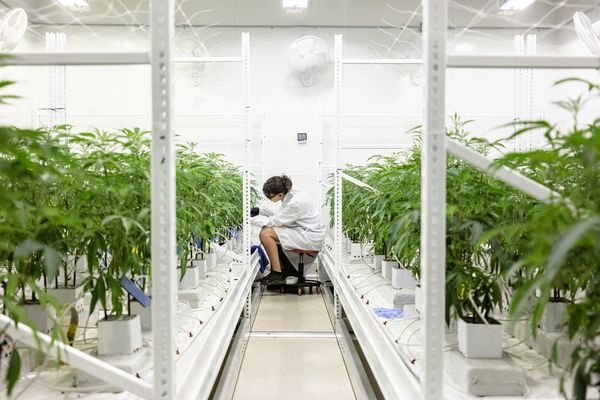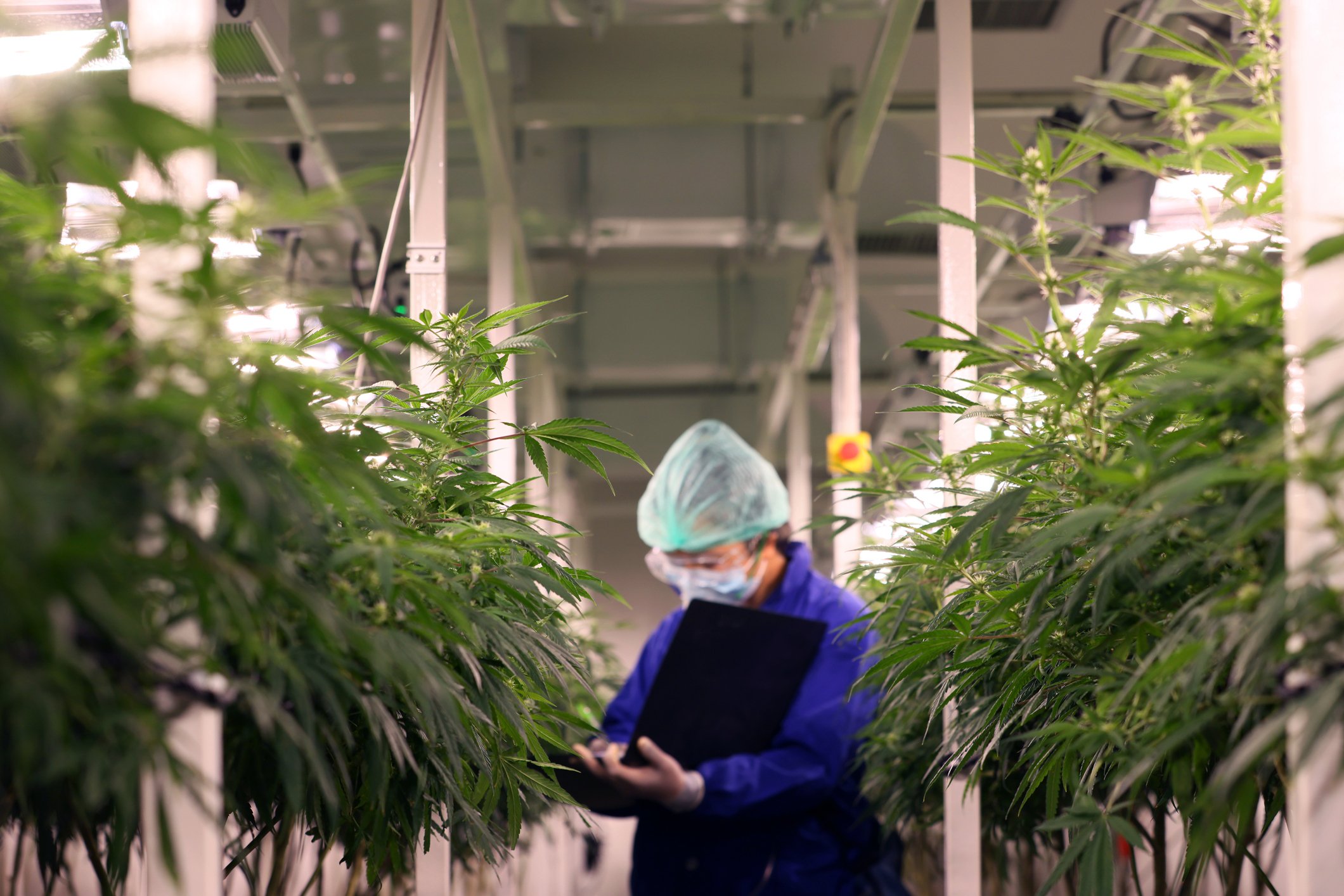Marijuana stock investors got a nice New Year's present on Dec. 31, when nearly every major title saw a big surge in share price. Canopy Growth saw a 12% rise on the day, while Curaleaf Holdings increased nearly 7%, and Cronos Group zoomed ahead by almost 16%. You get the picture.
This was heartening, but it didn't quite soothe the heartache that was marijuana stocks in 2019. Because of tough conditions in the marketplace in both fully legalized Canada and (slowly) legalizing America that persisted throughout the year, many still ended up well underwater year to date on New Year's Eve.
One, however, was a shining exception.

Image source: Getty Images.
The marijuana business' landlord
That stock is Innovative Industrial Properties (IIPR +1.40%), which ended 2019 up 67%.
There's a simple reason Innovative was on fire during the year while other marijuana stocks were too wet to produce a spark. The company is a real estate investment trust (REIT) that invests in the properties cannabis companies need to operate their business, and it does no growing, cultivating or selling of such products on its own.
It's also consistently profitable, which unfortunately is very much the exception rather than the rule among marijuana stocks.
In spite of its so-far unique niche in marijuana as a landlord, Innovative actually hews to traditional means of making a buck as a REIT. It holds a portfolio of properties -- 46 across the U.S., at last count, with a footprint of 3.1 million rentable square feet -- that it rents to tenants in the cannabis sector.
Not long ago the company launched a sale-leaseback program, in which it buys a property from a company and then leases it back to the same business as a tenant. This fairly standard arrangement in real estate is particularly compelling to pot companies, because it gives them a source of badly needed cash while allowing them to continue utilizing the properties they once owned.
No matter how a cannabis producer grows and cultivates product, it will need lots of real estate in order to do so. Demand for land and facilities is high, and accordingly, Innovative boasts 100% occupancy. How many traditional REITs, even the best ones, can make such a claim? Some of the most notable companies in the weed sector are Innovative tenants, including Grassroots (pending its acquisition by Curaleaf), PharmaCann, and Trulieve.
Because of the many limits of the U.S. cannabis industry just now, Innovative isn't very large, but it's growing quickly. Total Q3 rental revenue was a bit over $11 million, a hefty 201% improvement over the same quarter the previous year. Funds from operations (FFO, the most important profitability metric for REITs) nearly quadrupled over that same stretch to just over $8.4 million.
Since REITs are required to pay at least 90% of their net profit out as shareholder dividends, Innovative's payout is seeing quite the rise. The company currently pays $1 per share, double and then some from its first declared dividend of 2019. Innovative can be included in the high-yield dividend stock list, as that payout yields a comparatively generous 5.3% at the moment.
A cloudy future?
Since it's involved in the shaky cannabis business, future success for Innovative is not guaranteed.
Innovative is comfortably profitable, but it's exactly the opposite for nearly every grower and retailer in the sector. Tenant-to-be Curaleaf is a banner example; it has a lengthening streak of bottom-line losses behind it, some of which -- $24.5 million in Q2, for instance -- are well in the double digits. It's quite possible some of these companies will cease to be operationally viable.
On top of that, the legal changes necessary for the U.S. cannabis sector to really explode are not going to occur in the proximate future. Congress is currently considering bills to both strike cannabis from the federal list of schedule I drugs and liberalize financial services for the industry. However, these will almost certainly not pass in a Senate controlled by a party whose key members are resistant to such changes.
Finally, if somehow the cannabis industry frees itself from these clutches, it'll be significantly bigger -- and therefore attract other hungry real estate operators eager to win in the landlord game. In such an environment, Innovative will no longer be the one REIT in town; rather, it'll have to scrap and fight for business in a competitive environment. It hasn't yet faced this test, so it's hard to predict how it'll perform.
Still, I think Innovative has plenty of momentum behind it and will win new tenants even if the current ones melt away. It has enough of a war chest to keep acquiring new properties, not to mention support that attractive, high-yield dividend. Competition might arrive, but the REIT has plenty of time to prepare for it. I like this unique marijuana stock quite a bit, and I think all investors should consider buying it.







